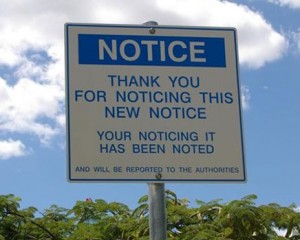Surprise! You’re Negotiating!
Negotiations aren’t neat and tidy events that happen at the beginning of an engagement and stop as soon as the contract is signed. Negotiations happen all the time and in all sorts of situations, but if you don’t realize you are negotiating, things can get messy pretty quickly.
Here’s how to recognize negotiations that don’t announce themselves with neon signs and some advice for handling them just as successfully as any other negotiation.
Conversations that automatically trip our negotiation alarm are usually about money or contracts. That’s good, in the sense that it helps us treat those conversations very carefully. It can be bad, though, if it means we only treat conversations about money or contracts as negotiations.
A negotiation is any communication between two or more parties about the needs of each in relation to the other.
How’s that again?
Any time you are talking to someone else about something that you want, and the person you’re talking to has some control over whether or not you can get what you want, you are negotiating.
You don’t need to be talking about money or contractual terms or with a client or in a suit. Negotiations happen with your friends, your kids, your co-workers, and the dude at the taco stand that gives you slack about throwing in an extra salsa.
Realizing that negotiations happen all the time can help you shake off the idea that you only use your negotiation skills in “special” situations. And you want to shake off that notion. Because if you don’t, you might end up missing out on getting something that you really care about just because it didn’t look “special” enough.
Some conversations where you might use your negotiation skills include
- a client’s request to move up the timeline of a project
- demands for revisions to a final draft
- an editor’s suggestions for the setting of a story or issues of character development
- whether an individual joins your organization’s Board of Directors
- your availability for a potential job
In the cold light of day, it’s obvious that each of these conversations is about something that is very important — your art, your time, the future of your organization. But in the heat of every day life, when you’re actually having these conversations, it might be tougher to notice that you are negotiating.
So the first thing you need to do is start noticing your negotiations. You don’t have to scream and wave your hands when they happen, just notice them. Say to yourself, “I’m negotiating. This is a negotiation.”
That simple act will help your brain realize it can access all those great negotiation skills you’ve been practicing if you get stuck or need help.
Once you start recognizing these non-monetary but equally important negotiations, you can start deciding if you want to keep talking. Quite literally.
Take another look at that list of conversations up there. How many times have you felt swept up in one of those conversations? They start and you don’t quite know what you want, but you can’t figure out how to politely disengage so you have the conversation and, unsurprisingly, you aren’t thrilled with the result. A crappy result, but not an abnormal one.
In a typical conversation we don’t often think of ourselves as having to do a particular thing. But in a negotiation you know you need to (1) understand what you want, (2) understand why they want what they want and (3) come up with options that serve your needs best and their needs adequately.
If you realize you are in a negotiation and you don’t have a handle on what you want, why they want what they want or what might suit both of you, you need to put the breaks on the conversation.
You have spent a lot of time and effort practicing and improving your negotiation skills to further your career. If this were a negotiation over money or the terms of a contract, would you willingly continue the negotiation unprepared?
Of course not! You’d realize what was happening and say to the other person, “You know, I’m not sure how I feel about this right now. Give me sometime to think about everything and I’ll get back to you.”
Negotiations can live or die on their preparation, and there is no reason to go through a negotiation unprepared just because the conversation caught you off guard.
So once you notice you’re having a negotiation, treat it like a negotiation. Identify your interests, figure out any back up plans you might have, understand where they’re coming from and brainstorm solutions that might work. And if you realize you don’t know any of those important pieces of information, take a break from the conversation so you can do that necessary prep work.
Thinking of a conversation as a negotiation can give you a template to follow as the conversation unfolds and that means you don’t have to start from scratch every time. You can use what you’ve learned about negotiation and apply those hard earned skills to conversations about things you genuinely care about.
Categories: Self Awareness Tools






